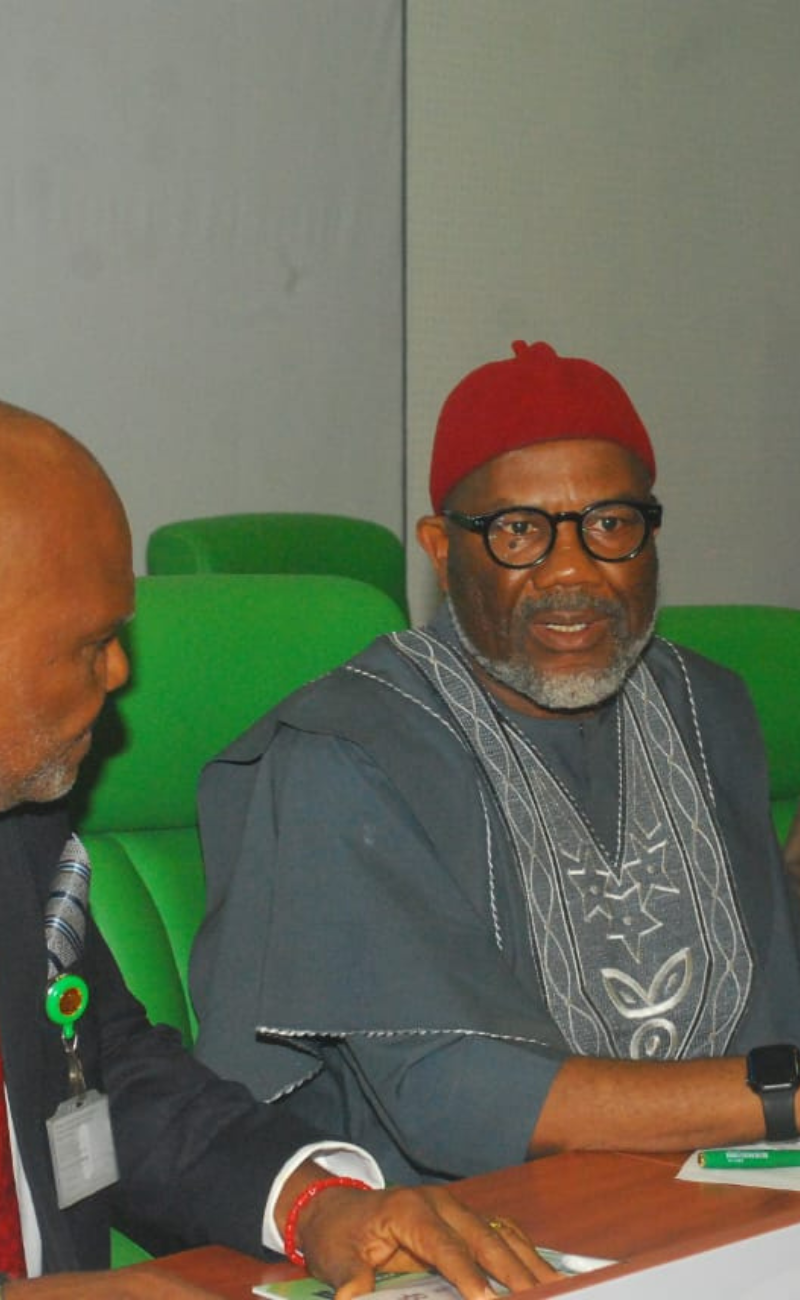Nigeria’s mining sector is under fresh scrutiny as lawmakers intensify efforts to stop illegal operations and enforce nationwide compliance.
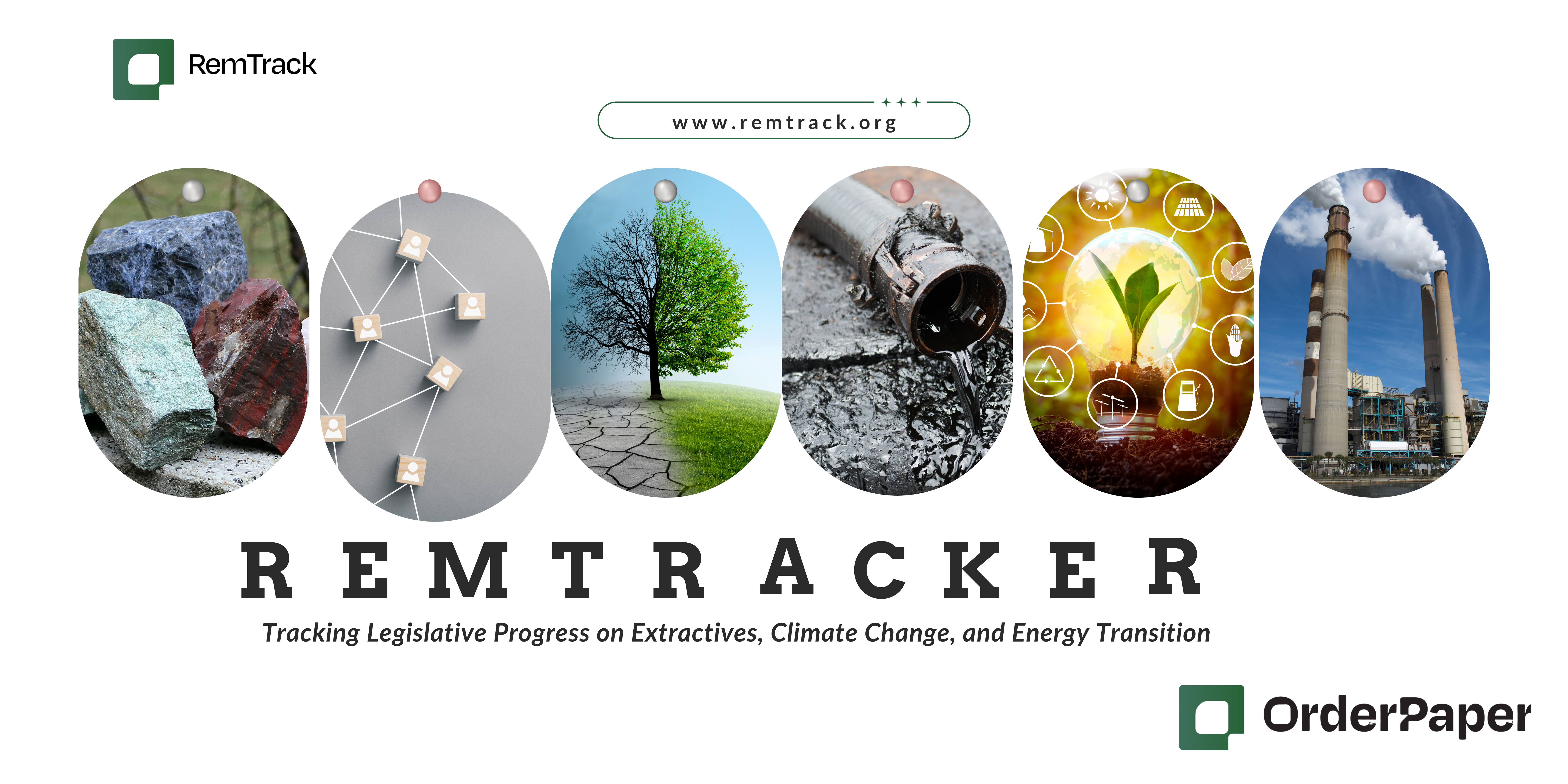
The House of Representatives Committee on Solid Minerals has launched a sweeping crackdown on illegal and unregulated mining activities in Nigeria, with a deep focus on Chinese mining operators.
This comes after a string of investigative hearings exposed widespread non-compliance, environmental violations, and disregard for national assembly and host communities.

At an investigative hearing held at the National Assembly, Rep. Jonathan Gaza (SDP, Nasarawa), Chairman of the Committee, announced that companies flouting regulatory obligations or evading legislative summons could face outright license revocation.
“We were quite taken aback by the brazen disregard for our laws, most of these companies, especially those owned by Chinese nationals, have deliberately refused to appear before the Parliament of the Federal Republic of Nigeria” Gaza said, adding: “It is unacceptable that the managing directors of some of these firms reside in China and leave only technical staff to manage Nigerian operations.”
The committee singled out Arab Contractors, Selsing Stone Limited, Homerset, Kaji Investments, Zeyin Jinja Investment Limited, Hasba Group of Companies, Viva Mines, Venus Mining Company, Tim Cornerstone, Omatek and Inorganic Earth (Saigon’s Investment Limited) for refusing to honour parliamentary invitations.
These firms, according to lawmakers, were not only violating Nigerian laws but also showing brazen disregard for Nigerian constituted authority and the welfare of the Nigerian people.
READ ALSO: Nigeria to provide electricity for 300m africans by 2030 – Speaker
What sparked this outrage?
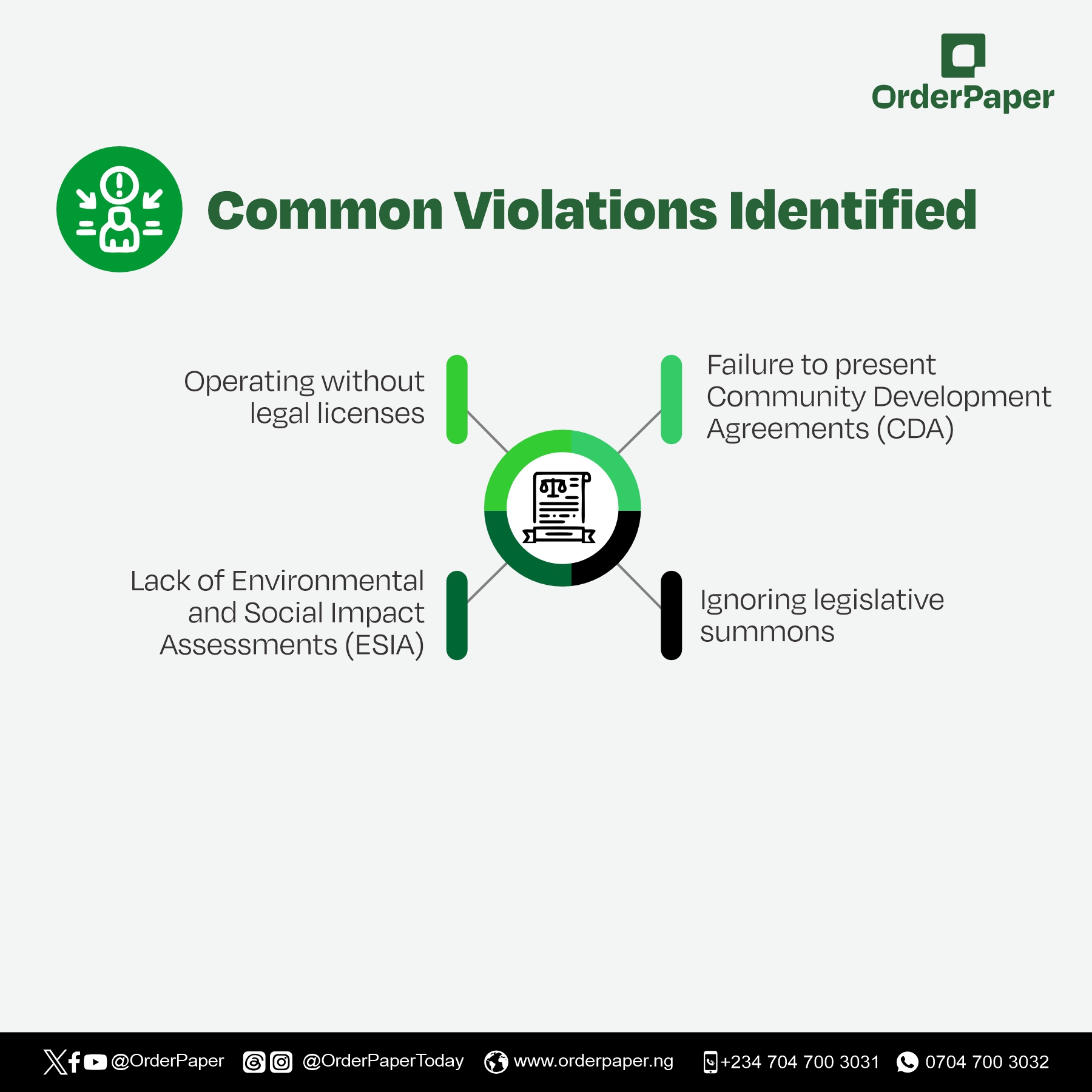
This legislative heat follows site inspections across quarry and mining sites across the country which revealed glaring violations including:
- Lack of valid Environmental and Social Impact Assessments (ESIAs)
- Absence of Community Development Agreements (CDAs)
- Poor living conditions for host communities.
- And most importantly, non-appearance of company executives at hearings when summoned.
“What we saw in the mines during our inspection was deeply troubling,” Gaza lamented. “In some cases, the companies have not even met the basic requirements to operate.”
Notably, Arab Contractors and Omatek were accused of allegedly running an illegal quarry without necessary regulatory approvals.
READ ALSO: Talking transparency with Faith Nwadishi -Fireside Chat Series
A Look at Nigeria’s Mining Landscape
With over 7,000 licensed players, the mining landscape in Nigeria is fragmented, covering a wide range of mineral types and scales of operation. Despite being rich in over 40 minerals, solid minerals still contribute under 1 percent to GDP long-term, indicating a vast gap between potential and performance.
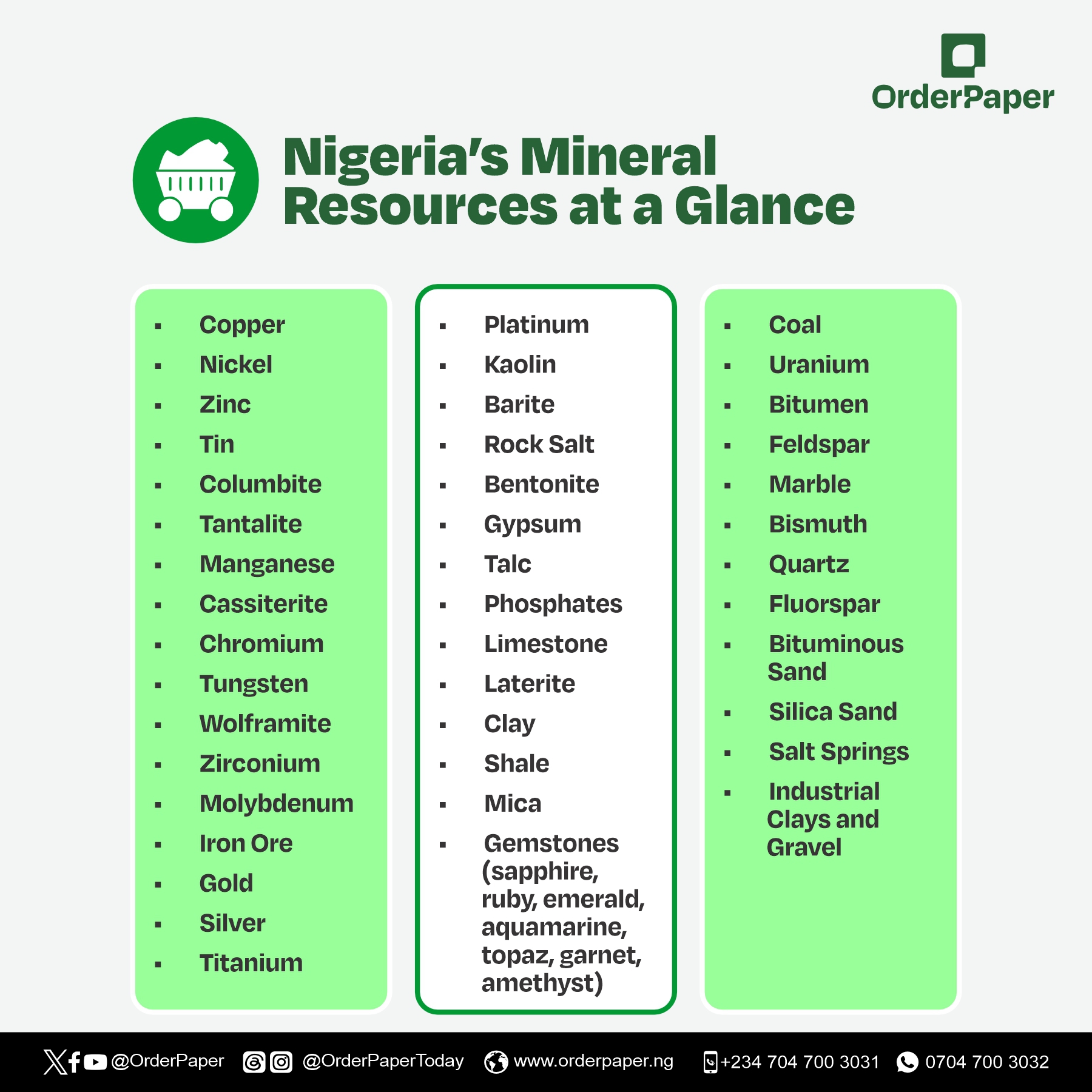
This gap in form of weak enforcement, outdated regulations, and weak compliance and monitoring have led to widespread abuse and environmental degradation, especially in rural host communities.
The most recent alarming revelations are centered around Chinese-owned mining companies as lawmakers have noted a pattern of absentee leadership among these companies.
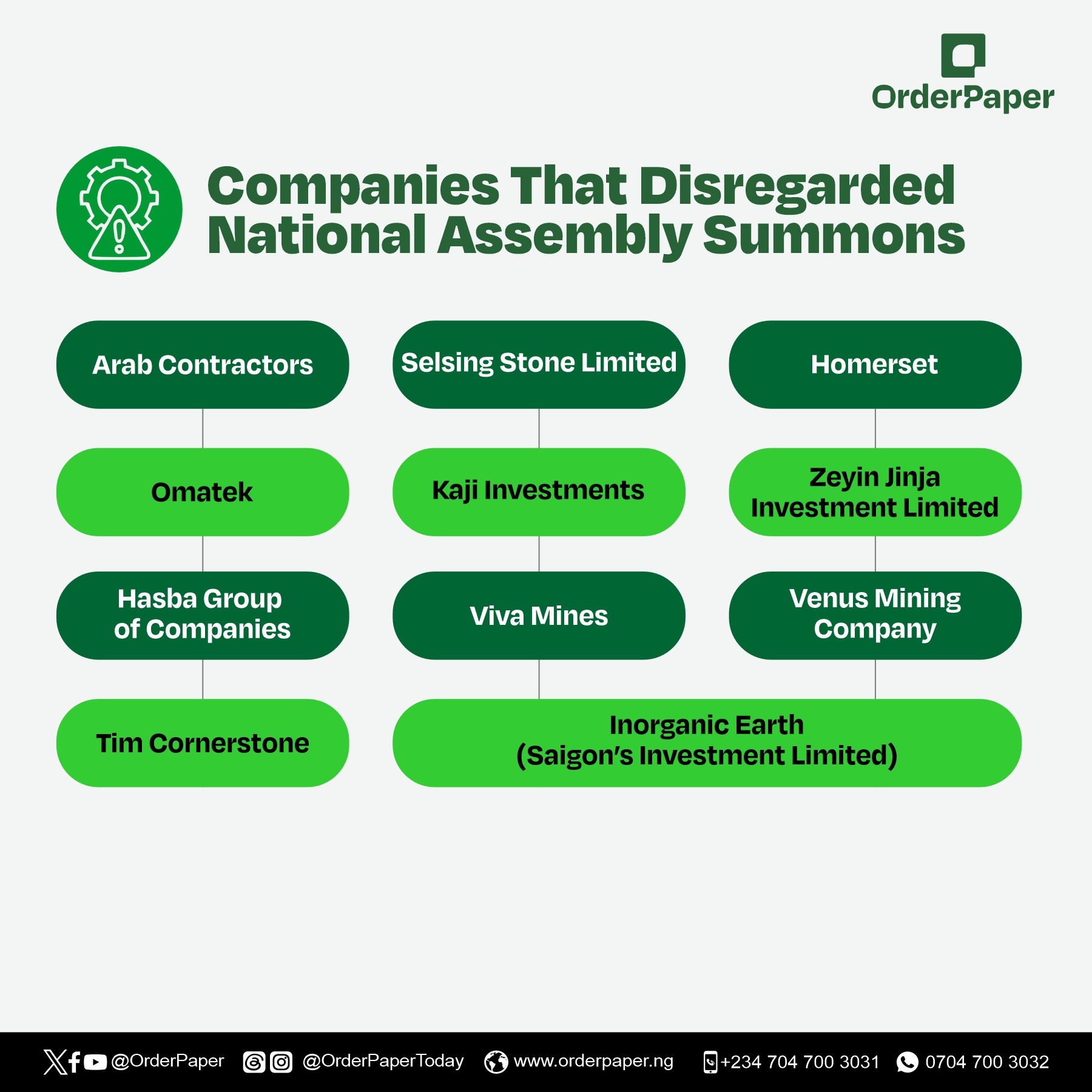
Companies named in the hearing include:
- Arab Contractors
- Selsing Stone Limited
- Homerset
- Omatek
- Kajik Investments
- Zeyin Jinja Investment Ltd.
- Inorganic Earth (Saigon’s Investment)
- Viva Mines
- Venus Mining Company
- Tim Cornerstone
- Hasba Group of Companies
The committee assured that Nigeria’s pursuit of foreign direct investment will not come at the cost of sovereignty and community welfare as no amount of foreign direct investment justifies the flouting of Nigerian laws or endangering the lives and welfare of the people.
He warned further that if these companies fail to appear before the expiration of this sitting, the committee will move for the outright suspension and possibly the cancellation of their licenses.
“We welcome foreign investment in Nigeria,” Gbefwi noted, “but we will not tolerate a situation where host communities are subjected to inhumane conditions and denied the benefits promised under signed agreements.”
Regulator Admit Gaps, promise Reforms
Vivian Okono, Director of the Mining and Environmental Control Department, acknowledged poor compliance industry-wide but assured that reforms were underway.
“When I assumed office in March 2022, compliance with environmental and social regulations was abysmally low,” Okono said. “We’ve since revised the 2014 guidelines in November 2023 to strengthen enforcement and community engagement.”
She explained further that under Section 116 of the Nigerian Minerals and Mining Act, companies are required to submit detailed environmental and social plans before operations begin. These include the Environmental Protection and Rehabilitation Program (EPRP) and annual reclamation statements.
“Companies must consult with local leaders, identify needs, and agree on developmental projects—ranging from road construction to educational infrastructure—before commencing mining.”
She emphasized that mining should be a blessing to communities, not a curse.
“Resources deposited in these regions are meant to benefit the people,” she said. “We’ve put systems in place to ensure that CDAs are not just documents, but living agreements that truly reflect the aspirations of host communities.”
The House committee affirmed that it will begin liaising with the Ministry of Solid Minerals to ensure swift action is taken against errant firms, stating strongly, that the House will not condone lawlessness disguised under investment.
Potential Outcomes
This parliamentary clampdown could signal a turning point for Nigeria’s solid minerals sector. If enforced, it would restore order to the current lapses, strengthen community participation, and elevate environmental standards.
Most importantly, it also sends a strong message to investors that doing business in Nigeria is no longer business as usual as it now requires strict adherence to local laws and regulations.
As hearings continue, more companies are expected to be summoned. Revocation or suspension of licenses may become inevitable, especially for those who continue to ignore the summons and environmental obligations.
Stay tuned for the next episode of RemTracker as we continue to provide in-depth analysis on how these legislative changes unfold and shape the future of Nigeria’s extractive industries.



